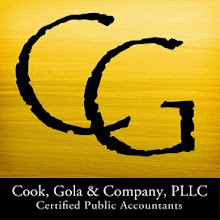At first glance, turning in a tax cheat seems to be a no-brainer decision. After all, people who cheat on their taxes drive up the balance due for the rest of us. A 2005 study by the IRS estimates that the “tax gap” – the difference between what taxpayers should pay and what is actually paid – is about $290 billion per year. This represents money that some taxpayers are underpaying to the government, and money that the rest of us have to make up with our taxes.
In 2006, IRS established a whistleblower program that offers a reward of up to 30 percent of the amount collected to anyone who turns over information leading to the collection of underpaid tax liabilities. IRS estimates that it paid $27.3 million in rewards from 2001 to 2005, with the average reward being $24,000 per case. So it is doubly puzzling to us that more people don’t take advantage of this program.
IRS estimates that only 5 percent of unpaid tax bills are collected via tips from third parties. Why such a small percentage? We believe it is because many people don’t understand the basics behind the IRS whistleblower program and as a result, don’t use it.
Here are some facts that we think might help people understand more about this program:
1. Many people think that only exposing blatant fraud will earn a reward. The truth is that any underpayment of tax, whether intentional (fraud) or unintentional (error), can be turned in to the IRS and be eligible for reward.
2. Any kind of tax is eligible for the whistleblower reward. An informant can turn in someone who is underpaying income tax, payroll taxes, excise taxes, or any other kind of tax.
3. In the corporate world, employees are often silent because they fear that their boss will fire them if they turn them in to the IRS. In fact, many states have laws prohibiting an employer for firing a whistleblower. Also, the IRS keeps the identity of a whistleblower confidential.
4. Anyone can claim a whistleblower reward for turning in a taxpayer who is underpaying their taxes. Many believe that only US citizens can earn the reward. In fact, foreign nationals are often in the best position to be able to turn in a taxpayer because so many of these types of workers are often paid “under the table” without payroll taxes being properly withheld.
5. Many people believe that IRS will “blow them off” if they bring a whistleblower claim. The truth is, IRS welcomes any help it can get when attempting to collect tax liabilities and they will take any claim seriously. This is especially true if the whistleblower takes the time to prepare evidence and hire an attorney to represent their claim.
There are standards that must be met to establish a proper claim for reward, so specific information is a must when building a case. A potential informant should have specific examples and detailed records. An informant will not earn a reward by simply saying “my boss just bought a new truck”. However, if an informant can provide copies of correspondence showing that the boss was writing off a personal vehicle as a company asset, the IRS could use that information.
Throughout the years, IRS has paid millions of dollars in rewards to informants. There are millions more to be paid, and IRS has strengthened its support and protection of whistleblowers to encourage more participation. Will you be the next one to earn a reward?
--Dan Musick is the Tax Services Partner for Cook & Associates, a full-service public accounting firm with offices in San Marcos and San Antonio, TX.
Technology Challenges the Accounting Profession
14 hours ago



Get the best tax preparation services in San Antonio at Uhlenbrock CPA. At Uhlenbrock CPA, Customer satisfaction is always guaranteed. if you are looking for a CPA Firm in San Antonio then Call Now:(210) 701-1040 & Get a Free Quote.
ReplyDelete